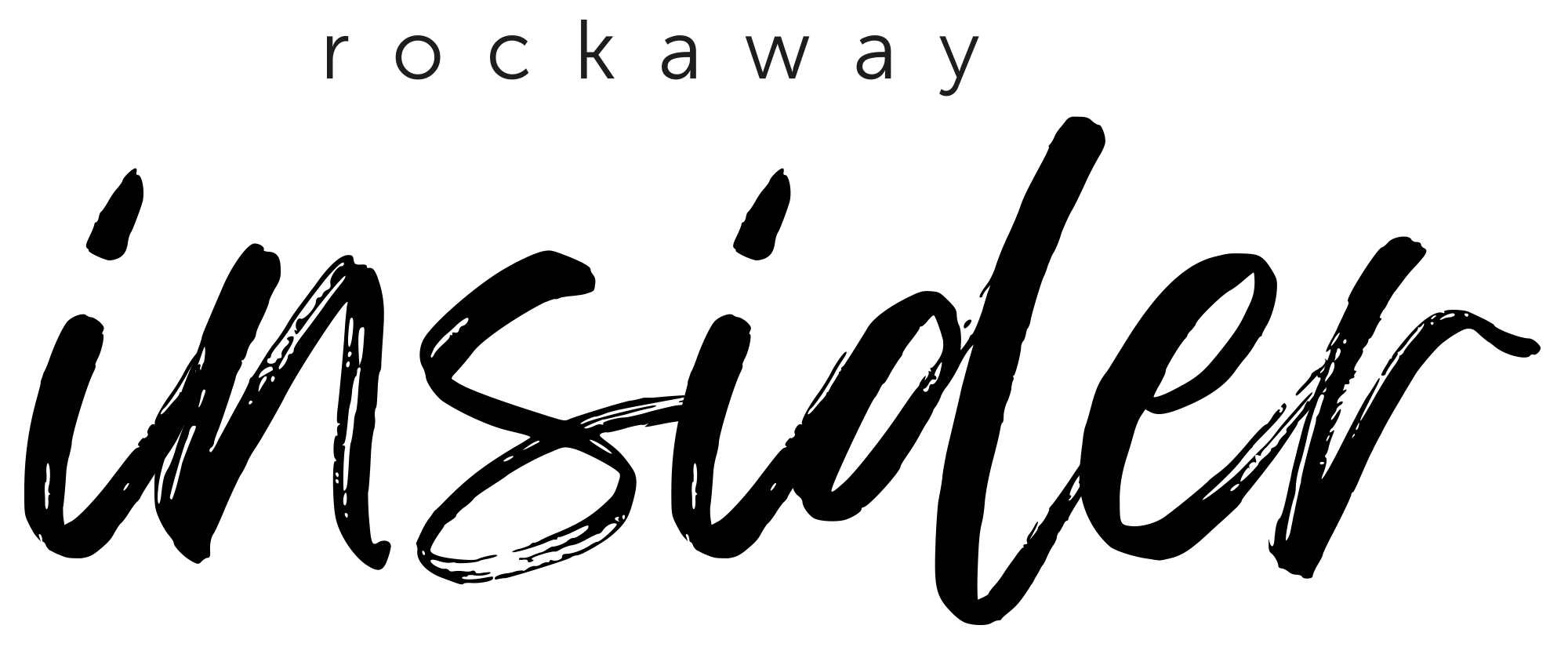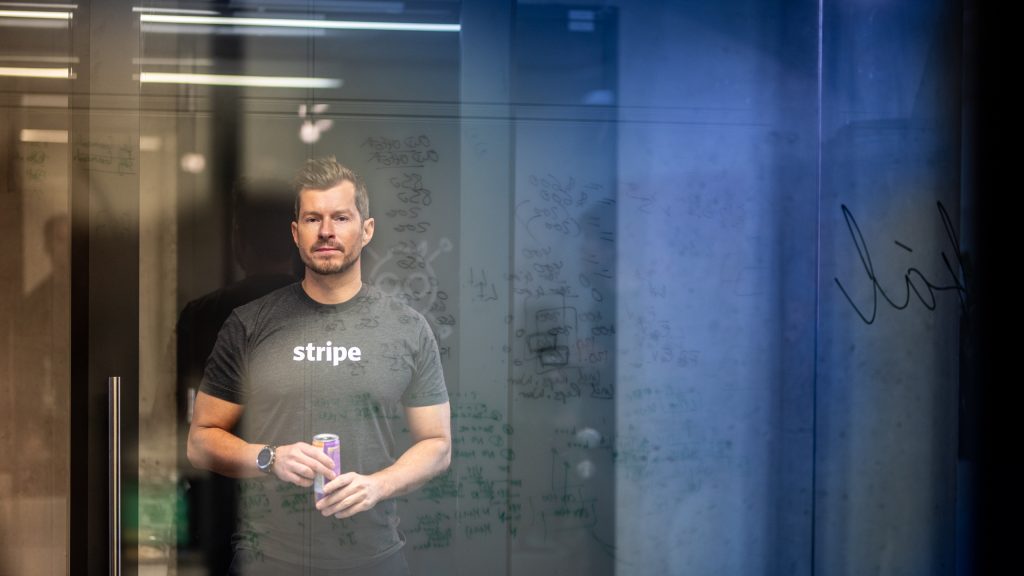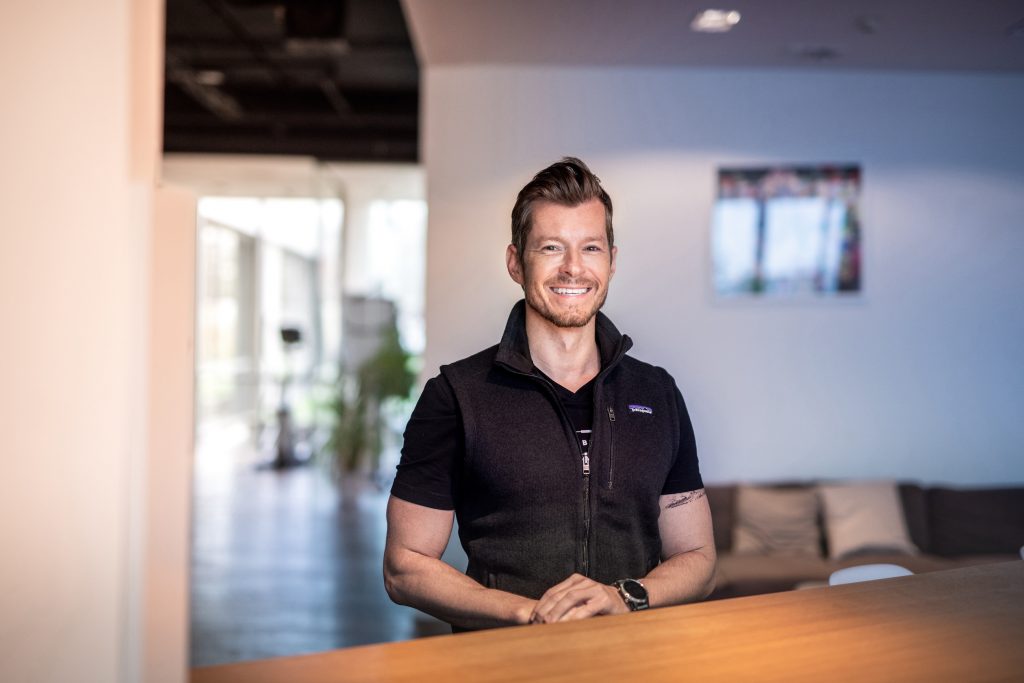All newsRockaway Insider with Dušan Kovačič, Rockaway Blockchain Fund Chief Investment Officer

Dušan Kovačič
We’re sending you the last issue of this year’s newsletter. This time Dušan Kovačič from the Rockaway Blockchain Fund answered seven questions.
He’s among those who don’t need to “turn off” too often in order to recharge for the next work week. As Chief Investment Officer he is responsible for all of the Fund’s investments, he’s involved with crypto-communities, and supports the development of user-oriented products and platforms. And as he himself says, he tries for it to be “fun every day”.
Next year you can keep looking forward to the Rockaway Insider – on January 12 it will arrive in your inbox with a brand-new look!
What key thing has the last year taught you?
Firstly – Covid taught us that you can invest without getting to know the team in person. Prior to Covid, not meeting was irresponsible, while today it’s business as usual. Today, it’s even normal in the VC world to invest in pseudo-anonymous teams, where the only thing you know about the team is their Twitter and GitHub handles. Secondly – the market has changed completely. The remnant of the 2018 bear market was the fact that there was no money in blockchain. Neither funds nor projects had it, including ours. Investment rounds were done in the following style: “Let’s pull some money to support the given project, so it can build its vision.” But today there’s a surplus of money and everyone wants the get ahead of other investors. Collective deal sharing has turned into a more aggressive game. That’s why we also have to be more aggressive. The world is moving at some speed, and blockchain is moving ten times as fast.
We also became convinced that global platforms built on blockchain would in time replace the financial system as we know it today. Today the traditional world of finance is based on a system of institutions and parties that people trust. When an institution breaches that trust or behaves irresponsibly, people lose their money. In the case of blockchain-based financial services, the user’s trust in the “black box” of institutions is replaced by trust in open-source software that runs autonomously and transparently on a blockchain. That makes the entire process significantly faster and cheaper. For example, Uniswap, a decentralized exchange whose functionality doesn’t depend on any people at all, has a daily transaction volume greater than that of the New York Stock Exchange.
We also learned that speculation is a beachhead market for all crypto use cases. And that’s great, because this market will quickly discourage investors who don’t see below the surface, leaving more opportunities for us. We also learned that the market can change from one day to the next, which was the most surprising thing for me. The impact on our business then consists of the fact that if a deal isn’t signed, there’s no deal. More than once, it happened to us that a project or investor abandoned the deal right before signing.
What is the number-one rule that you follow every day in your business?
Consistency and persistence are key. The important thing is to keep working, day by day, improving bit by bit. It doesn’t have to take place quickly, but there’s got to be regularity. And that’s what I’m trying to do.
One learns from one’s mistakes. What mistake taught you the most, and what, specifically?
We weren’t aggressive enough for the sector we were in. If we’d been more aggressive from the perspective of looking for opportunities and investing, we could have been ten times as successful. Investing in ventures consists of trying to understand new markets and opportunities before others do. And that’s one of my greatest lessons: in the beginning there was the expectation that we’d be investing into things that were growing, that first we’d see growth and then we’d invest. But we learned that in the world of blockchain, that’s not the case – the way it works is that, for example, over the course of two months nothing turns into a billion dollars in annualized revenue; things take off quickly and it’s almost impossible to get on a train that’s leaving the station. The story about investment that grows linearly might work in the traditional ventures world, but blockchain projects have such amplitude that you can’t invest into an upward trend.
So, instead of monitoring data, trying to watch the numbers and then investing, we’re trying to build hypotheses that we think will be successful, and to invest prior to the occurrence of growth. Of course, you may not always be right.
What is your most important piece of advice for new start-uppers?
It depends on the start-upper’s background. A programmer, for example, can join an open-source project and contribute to SushiSwap. Ninety percent of blockchain applications on Ethereum are open source and are public on GitHub. There’s a list of open issues there, where a start-upper can pro-actively start participating in solving them, start communicating, designing a solution. When you’ve got a business background, it’s also possible, but from a different angle. Everyone has to find a vertical that interests them – the three most fundamental categories are trading, financial services, and Web3. As far as financial services go, you should join some large, established project such as Aave or Compound, learn how it works, and start submitting suggestions for improvement to the community. Evangelize the community. Whoever wants to can come today, start participating in the ecosystem, and build a name for themselves within it. They say that in Web2 GitHub accounts replaced resumes. In the world of blockchain, it’s a Twitter handle and a history of wallet transactions.
What do you consider the greatest benefit of your business for society?
Blockchain lets you access services wherever you are. This isn’t such a big problem in Europe, but the situation is different in the USA, South America, or Africa, where a large proportion of people don’t have access to financial services. If you’ve got internet access, you can install a wallet and have access to all services running on the given blockchain. Blockchain is changing the world of financial services and giving everyone the ability to participate in them, including the 1.7 billion people who are currently denied this. I think that this is having a large impact on improving society.
As far as digital art goes, for example, it’s not about distribution, but about discoverability. I’ve thought about this many times – Picasso and similar artists had to die first, and only after they were discovered did their works become worth tens to hundreds of millions of dollars. I think the reason was the social circle in which they were enclosed, which was incapable of appreciating them, and it took decades before the information that they were good replicated throughout the world. In the blockchain world, it takes only a few days. For example, there’s generative art, where the artist/programmer creates sufficiently visually interesting works, and their discoverability and appraisal will take a couple of hours instead of a hundred years. This happened on the fxhash platform to an artist by the name of “zancan”, for example, who created a series entitled Garden Monoliths. He had only a two thousand followers on Twitter, his works were unknown, and sold for about $30. A few days went by, he made an impression on the right people, because fxhash is a popular platform right now – and suddenly his works were valued at $20 to 100k, and he became a rock star. So blockchain isn’t only a distribution platform; it’s also a discoverer. And thirdly – blockchain opens up new opportunities in terms of the labour market. Open ecosystems facilitated unprecedented growth of “play-to-earn”, where some people spend their work hours playing a game in order to obtain gaming items that they sell for real money to people who don’t have time for gaming. For example, in the game Axie Infinity, you lend your Axie to someone in the Philippines; that person uses it to compete, improves it, wins money, and sends you half and keeps half. The practical impact of this model is globalization of the labour market even for low-income groups. Axie Infinity caused a real increase in the minimum wage in the Philippines, where every day two million people turn on the game. So – if you’re in some cut-off location, but have internet access, you can replace your low-paying job with different work within the digital economy.
The impact of blockchain on society is truly large in many ways, and it’s not over yet. Blockchain will fundamentally change the way we manage the ownership of both virtual and physical assets. Just like money in decentralized financial services, it allows all operations to be automated.
What question are you asked most often, and how do you answer?
People often ask me what the price of bitcoin will be at some particular time or other. I try not to answer, because that’s something nobody knows. I say that bitcoin is a religious asset and its supply is limited because a maximum of 21 million will be mined, and no more. That’s why its price is always merely a function of demand, which changes depending on the current mood on the markets. But it’s true that the amount of capital that’s taking an interest in bitcoin is increasing, so I’d expect its price to grow. By how much? I don’t know. If we fit a straight line to the price, the trend is clearly an upward one.
What life hack helps you most in your work?
I always say that the following has always worked in any company: “act first, then look for forgiveness”. If you ask whether you can, you’ll always hear only about problems. Successful entrepreneurs don’t ask for permission; they simply do something and then see. That helps me. And then there’s my life hack consisting of the effort to not run away from what I do every day, and look for some sort of vacation. It’s important for it to be fun every day. I don’t always succeed, of course, but I want to be consistently able to do what I do, and for it to be fun for me. I don’t go at 120 % every day, I try to have some reserves so that I want to return to work the next day and continue. That will give you stamina and results. If you go too hard, you’ll last a week and then will become totally demotivated and will lose the desire to return to work. And no successful project was built in a week.
___
![]()
Did you like this interview?
The Rockaway Insider Newsletter is published every second Wednesday morning – subscribe now.
By clicking on “Subscribe” you agree to subscribe to the Rockaway Insider newsletter using the specified e-mail address. You can cancel your subscription at any time directly in the newsletter.
___




